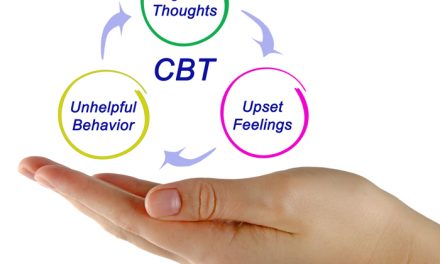Do you watch the television show Ghosts? In the situation comedy, a collection of deceased individuals from across the centuries squabble among themselves and with the “livings.” Each of the ghosts has a unique power. One of them can flicker lights. Another can move objects. Some of the other powers are less useful—and less pleasant.
The conceit is similar to a popular series of fantasy novels called The Magic of Xanth. Each individual in these books has a magic talent that is unique to them (warning: these books are not for you if you do not enjoy an overabundance of puns). Or think about superheroes: While there is some crossover of powers from hero to hero, each character’s individual powerset is what makes them who they are.
Now, we know that you are not a ghost or living in a magical realm or a superhero (or if you are a superhero, you have to keep your identity a secret), but that doesn’t mean you don’t have abilities of your own that can serve you well in recovery.
Lean into Your Strengths
We offer a lot of advice in this blog. We encourage you to eat healthily, get enough restful sleep, and exercise regularly. We suggest mindfulness practice, journaling, and finding an engaging hobby. We propose ways to improve your relationships, give back to your community, and better manage your finances. And that is far from a complete list.
We stand by all of that advice. But we also acknowledge that it can be hard—even impossible—to incorporate each and every idea into your individual recovery journey. And so we offer another piece of advice:
Identify your strengths and interests, and lean into them to support your ongoing sobriety.
Some Examples to Consider
So what does it mean to lean into your strengths and interests in recovery? Here are some potential ideas:
- Were you a high school or college athlete? You probably have the discipline necessary to exercise regularly. You may also have the ability to serve your community by coaching young people.
- Have you ever played an instrument or sung in a choir (or even in the shower)? Consider taking it up again. Getting back in the habit of taking lessons and practicing can be a wonderful and satisfying hobby. Making music with others—no matter how good (or not so good) you are—can be a great way to build good relationships.
- Do you love to host your friends? Being intentional about hosting dinners or game nights or movie marathons or what have you can strengthen relationships—and ensure that your socializing happens in an environment free from drugs or alcohol.
- Is there a cause or organization in your community that you really care about? Becoming a volunteer can be exceptionally rewarding as you work with others to accomplish goals that are important to you. Having a meaningful project reminds you of the ways in which sobriety allows you to contribute to making your community better for everyone.
- Do you love to read? Many of the suggestions above involve engaging with others, but if you have a more introverted personality, that may not always be the best approach for you. But if you love a quieter activity—like reading or solving puzzles or crocheting—making time in your schedule to do what you enjoy can be a powerful way to support your sobriety.
Again, these suggestions are about finding the strategies and activities that align with your personality, interests, and strengths. When you do that, you are firming up the foundation of your sobriety.
An Important Note
Think about your job for a moment. We hope that for the most part you enjoy your work. But there are probably a few tasks or meetings or requirements that are not your favorite. Still, you have to engage with those things you like less at work in order to keep things on track.
The same is true in recovery. This blog entry has been all about more fully engaging with activities you truly enjoy in order to support your ongoing sobriety. But it is still important to stick with strategies you might enjoy less.
For example, it is important that you stick with your 12-Step or other recovery program, even if you find it hard to schedule or occasionally boring. You should try to swap out one unhealthy snack for something a little better for you, even if you are not likely to rebuild your diet from scratch. It is important to pursue restful sleep, even if—especially if—you find it hard to slow down in the hours before bed.
Still and all, leaning into the activities you enjoy in recovery can help you better handle the aspects of the journey that you find less appealing or more difficult.
Our Strength? Helping You Get Sober
The Aviary Recovery Center—located near St. Louis, Missouri—offers individualized treatment for substance use disorders and co-occurring mental health disorders. We lean into our strengths to provide evidence-based approaches grounded in our experience, expertise, and empathy. If you need help reclaiming and maintaining your sobriety, we can supply it.










